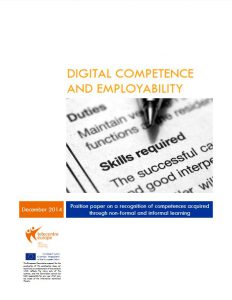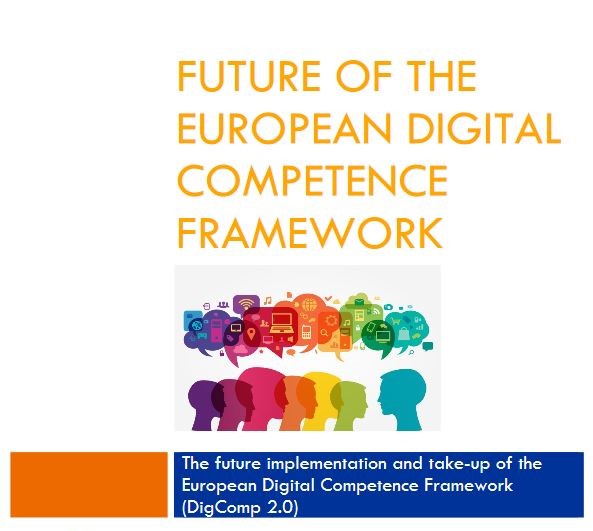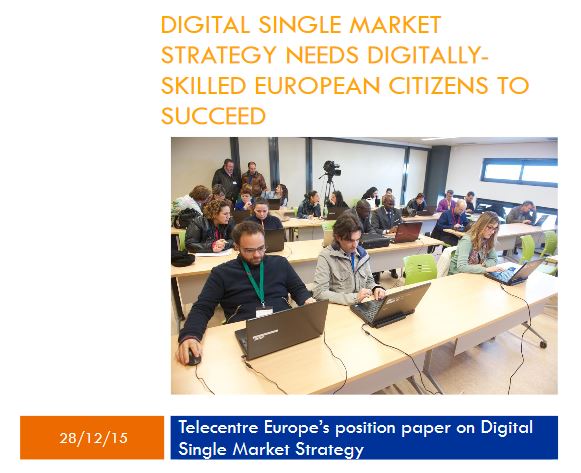15 Dec Digital competence and employability (Telecentre-Europe’s policy position)
15 Dec, 2014
A recognition of competences acquired through non-formal and informal learning
 In this policy position paper Telecentre Europe argues the need for a common European framework (DIGCOMP) that allows a shared understanding of the meaning and implications of digital competence and that presents its components and levels of proficiency, similar to the Common Reference Framework for languages.
In this policy position paper Telecentre Europe argues the need for a common European framework (DIGCOMP) that allows a shared understanding of the meaning and implications of digital competence and that presents its components and levels of proficiency, similar to the Common Reference Framework for languages.
Such an adoption might ease the comparability across Europe and the alignment and harmonisation of training offers, many of which will be undertaken by non-formal and informal instances, such as telecentres and libraries. The existing three European frameworks have been developed recently at the request of the European Commission that touch upon digital competence – the eCompetence Framework for ICT professionals; the eCompetence framework for end users; the DIGCOMP framework.
 Telecentre Europe suggests that – in the case of non-ICT professionals – the DIGCOMP framework is used as it considers and develops the transversal component of digital competence that are necessary for a variety of job profiles. The eCF for end users can be used to complement the DIGCOMP frame as it covers some aspects of digital competence in a more granular way and allows for measurements and certifications which are already developed and adopted. The eCF for ICT professionals shall then be used in the context of ICT-related jobs.
Telecentre Europe suggests that – in the case of non-ICT professionals – the DIGCOMP framework is used as it considers and develops the transversal component of digital competence that are necessary for a variety of job profiles. The eCF for end users can be used to complement the DIGCOMP frame as it covers some aspects of digital competence in a more granular way and allows for measurements and certifications which are already developed and adopted. The eCF for ICT professionals shall then be used in the context of ICT-related jobs.
To download our full policy paper on this topic click here









